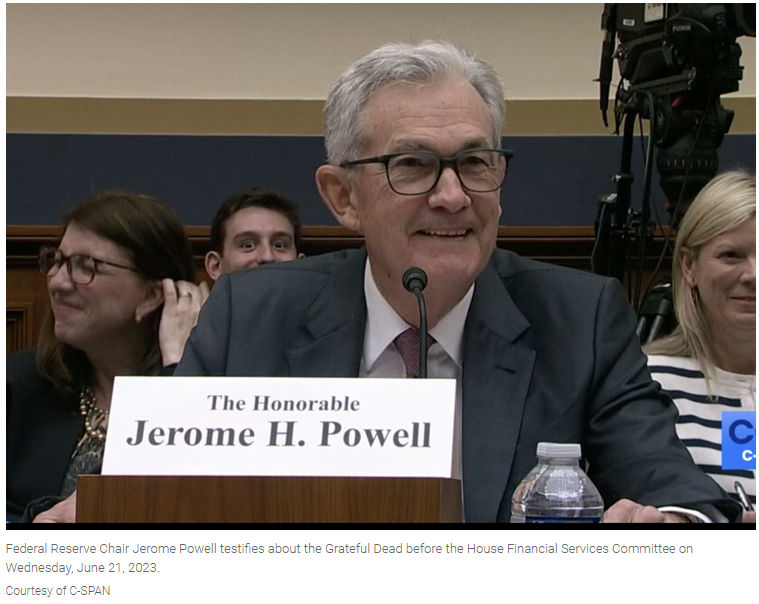|
Recent reports show that annual inflation rose 4% in May, down from 4.9% in April. In response to this and recent bank failures, the Federal Reserve announced that it’s pausing raising its target interest rate in June after approving 10 consecutive rate hikes, raising its target from nearly zero to a high of 5.25%.
But prices remain elevated and inflation is double the average 2% rate that the Fed prefers, which is making it challenging for Americans to get by. Food prices increased in May at home and away from home faster than 5% year-over-year, and shelter and new vehicle prices are up well above 4%. While wages are rising slightly, they still aren’t keeping pace with inflation year-over-year for 26 straight months. Simply put, times are tough. This is why the Fed needs to use the one policy tool in its box that it directly controls and has the most significant influence on inflation: cutting its balance sheet. Measures of the money supply are declining. The broader money supply known as M2 is down about 5% over the last year, which is the fastest pace since the Great Depression. And the Fed’s monetary base has declined by about 6% over the last year, which is the fastest pace since 2019. But these are after some of the most rapid increases in these measures on record, which leaves their amounts extraordinarily high and manipulative in the marketplace. These extreme increases in measures of the money supply resulted in artificial market distortion as more money was created out of thin air while available goods and services remained stifled by shutdowns, government spending, taxes, and regulations. As this made it more difficult to discern the true value of goods and services, price signals were thwarted. None of these ramifications will be abetted by declining interest rates or pausing rate hikes. Just as the markets were hurt by the Fed increasing its monetary base, so can the markets improve with fewer distortions by the Fed decreasing its balance sheet. By relying less on government intervention and artificial liquidity, markets can get closer to being free markets and clear based on market fundamentals rather than government failures. The Fed should at least double its rate of current cuts to achieve market sanity, meaning at least 12% year-over-year, until it gets to less than 10% of gross domestic product rather than the nearly 50% today. This would be aggressive and result in a harder economic landing but is necessary given the severe market distortions after many markets have been propped up on false strength for years. In the event of a hard landing, spending, employment, and investment would likely be affected as economic activity would be forced to slow down. But if the government lets markets work, the economy would stabilize more quickly. The long-term result would be that wages keep pace or grow faster than inflation again, cooking at home would be cheaper than eating out, and debts would decrease. Unfortunately, since overspending is a bi-partisan problem, political pushback would likely ensue if the Fed goes this route as it will mean a higher cost of funding the massive national debt. Although cutting the balance sheet is the solution, a cultural shift among politicians that favors less spending must preclude it because the Fed is implicitly and explicitly helping the federal government from blowing up the budget more with even higher net interest payments. Ultimately, the path toward a stronger and more prosperous economy lies in the Fed's willingness to take bold actions and the political will to embrace responsible spending and balance sheet practices. A brighter economic future can be achieved by prioritizing market stability over short-term political considerations. Originally published at The Center Square.
0 Comments
Leave a Reply. |
Vance Ginn, Ph.D.
|


 RSS Feed
RSS Feed